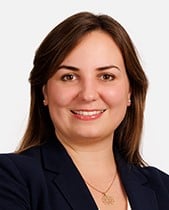Revision of the Swiss Declaration to the Hague Evidence Convention and the Federal Act on Private International Law: Facilitation of the use of electronic means of communication in cross-border civil proceedings
Persons residing in Switzerland who are involved in foreign civil proceedings may soon be able to be examined or heard by telephone or video conference directly by foreign authorities or a person tasked to do so without prior authorization from the Federal Office of Justice (FOJ). Under existing regulation, such prior authorization is required to avoid criminal liability under the so-called blocking statutes (cf. Art. 271 of the Swiss Criminal Code). The current regulation is increasingly perceived as cumbersome in view of the advancing digitalization and the experiences during the Covid-19 pandemic. In addition, such examination or hearings could also soon be possible in civil proceedings in countries that are not party to the Hague Convention on the Taking of Evidence Abroad in Civil or Commercial Matters (Hague Evidence Convention). Currently, this is only possible in exceptional cases.
With the revision of the Swiss Civil Procedure Code entering into force on 1 January 2025, the use of such electronic means of communications for the examination of witnesses and other persons as well as other procedural acts will be allowed in domestic civil proceedings. The Swiss Federal Council now intends to extend this possibility to cross-border civil proceedings by amending the Swiss Declaration No. 5 on Articles 15, 16 and 17 of the Hague Evidence Convention and Articles 11 and 11a of the Federal Act on Private International Law (PILA). On 15 March 2024, the Swiss Federal Council approved the dispatch with the draft of the legal provisions for the attention of the Swiss Parliament. In the following, we summarize the most important points covered by the intended amendments of the Swiss Declaration No. 5 to the Hague Evidence Convention and the PILA.
The draft act provides for a two-part federal decree. The first part contains the authorization of the Swiss Federal Council to amend the Swiss Declaration No. 5 to the Hague Evidence Convention to the effect that no prior authorization is required for the examination or hearing of a person residing in Switzerland by electronic means of communication, provided that certain requirements are met to safeguard Swiss sovereignty and to protect the person concerned. The second part of the draft act contains the amendments to the PILA aimed at extending the facilitation of the use of electronic means of communication in cross-border civil proceedings to non-contracting states to the Hague Evidence Convention.
Amendment of the Swiss Declaration No. 5 to the Hague Evidence Convention
According to the first part of the draft act, authorization will no longer be required where the taking of evidence involves an examination or a hearing by telephone, video conference or other electronic means of audio or video transmission. The exemption applies if the person concerned is in Switzerland during the respective telephone or video conference. It does not require the person concerned to be present at a specific location, such as the premises of the local civil court, to participate in the conference.
The exemption from the authorization is linked to compliance with a list of requirements, most of which are taken from current authorization practice. To safeguard Swiss sovereignty, but also to protect the person concerned, the action must be announced to the FOJ in advance. This announcement can be made by the foreign civil court, one of the parties to the proceedings or their domestic or foreign legal representatives, as well as by the person concerned or their legal representative. In any case, the notification must be made “in good time”. The notification is deemed to have been made in good time if it is received by the FOJ at least fourteen days before the planned telephone or video conference. The timeliness of notifications received later depends on the circumstances of the individual case. This is without prejudice to the acceptance by the authorities of notifications at short notice in cases of urgency.
In addition, the person concerned is required to submit a declaration stating that they have taken note of the requirements and consent to their participation in the telephone or video conference. No special form is required for the declaration. It can therefore also be made by email, for example. The person concerned may also withdraw his or her consent at any time, as participation in a telephone or video conference is voluntary under both the current and the new regime.
If the person concerned participates voluntarily in a telephone or video conference, the authorities cannot prohibit the telephone or video conference with the person concerned. However, they may file a criminal complaint if they believe that the requirements are not met. Furthermore, they may raise concerns about the legality of the foreign civil proceedings to the person concerned.
These restrictive requirements are intended to exclude the use of a cross-border taking of evidence in a civil matter to circumvent criminal legal assistance. If the aforementioned conditions are not met, the examination or hearing of a person in Switzerland in the context of foreign civil proceedings generally constitutes unauthorized action on behalf of a foreign state, which is subject to criminal sanctions in Switzerland (cf. Art. 271 of the Swiss Criminal Code).
Amendment to the PILA
The second part of the draft act, the revision of the PILA, aims to exempt solely telephone and video conferences on Swiss soil in the context of foreign civil proceedings (but not any other sovereign acts) from the requirement of seeking legal assistance and thus extending the rules of the Hague Evidence Convention to non-contracting states.
Under current law, the examination of a person by telephone or video conferences in the context of civil proceedings generally qualifies as taking of evidence and, according to Swiss law, cannot be carried out directly in Switzerland by a foreign actor, but only via legal assistance channels. In the absence of an international treaty regulating the requirements and procedural steps for the granting of legal assistance, such as the Hague Evidence Convention, it would normally be necessary for the foreign court to use diplomatic channels to submit a request to the Swiss authorities. However, this process is cumbersome and time-consuming. To address this issue, the amendment of the PILA intends to extend the rules of the Hague Evidence Convention to non-contracting states for telephone and video conferences only, which would eliminate these obstacles.
Outlook
In the rapidly advancing digitalization of society, examining parties, witnesses or experts using electronic means of communication is becoming increasingly popular in cross-border civil proceedings. This approach has several advantages over face-to-face proceedings. such as increasing a person’s willingness to testify as a witness or expert in a foreign trial and enabling citizens to assert their rights more easily. The use of electronic means of communication in cross-border civil proceedings also has the added benefit of reducing travel and emissions harmful to the climate. The extension of the provisions of the Hague Evidence Convention to non-contracting States will also lessen administrative burdens and make relevant processes less time-consuming. In view of these benefits, the intended change to the current rules would be a welcome development. As a next step, the draft act proposed by the Swiss Federal Council will now have to be debated and adopted by the Swiss Parliament. The debate has not yet been scheduled on the Parliament’s agenda.





